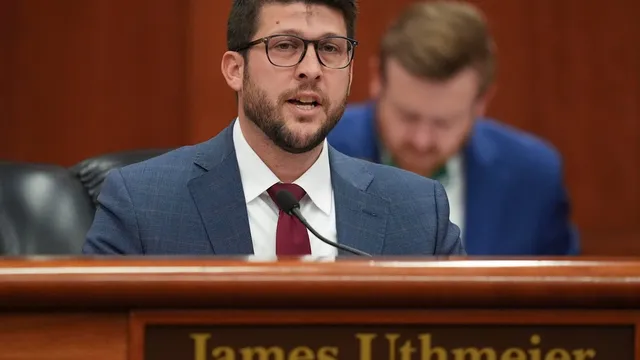
Florida fights back to enforce strict immigration law blocked by courts
2025-06-25 01:14- The Florida Attorney General filed a request with the U.S. Supreme Court to enforce a new immigration law.
- A federal judge previously blocked the enforcement of this law, calling it likely unconstitutional.
- If the Supreme Court does not intervene, Florida may be unable to combat illegal immigration effectively.
Express your sentiment!
Insights
In February, Governor Ron DeSantis signed into law a measure known as SB 4C, aiming to criminalize the act of unlawfully entering Florida for undocumented migrants. Following its passage, immigration advocacy groups, including the Florida Immigrant Coalition and the Farmworker Association, filed lawsuits alleging the law was unconstitutional and violated federal laws. In April, U.S. District Judge Kathleen Williams issued an injunction that barred its enforcement, deeming the law likely unconstitutional. This judicial ruling has led to an ongoing dispute between Florida Attorney General James Uthmeier and the courts, with Uthmeier instructing law enforcement officers to disregard the injunction, resulting in his contempt ruling by Judge Williams. Reports indicate that Uthmeier described enforcement as critical to combat the surge of illegal immigration affecting Florida, and he has now petitioned the U.S. Supreme Court for emergency relief to allow enforcement of the law while legal battles continue. The case represents a significant intersection between state law and federal immigration policy, reflective of the larger national debate on immigration enforcement. The implications are high, with potential impacts on families and communities within Florida, as advocates argue the law threatens to tear families apart and violate due process rights.
Contexts
The Supreme Court plays a pivotal role in interpreting and adjudicating state immigration laws, often shaping the discourse surrounding federal versus state jurisdiction in immigration matters. The Constitution grants the federal government exclusive power over immigration policy, yet various states have sought to implement their own laws in response to perceived gaps or inadequacies in federal enforcement. This has led to a multitude of legal challenges, prompting the Supreme Court to step in to resolve conflicts between state laws and federal immigration policies. The court's decisions can significantly impact how state laws are designed, implemented, and enforced, thereby affecting millions of individuals within the United States, particularly undocumented immigrants. State actions regarding immigration often target aspects such as law enforcement cooperation with federal immigration authorities, eligibility for state-funded services, and regulations affecting immigrant workers. Several states have passed laws that either mirror or diverge from federal immigration policy. This local legislation can provoke a variety of responses, including litigation that can escalate all the way to the Supreme Court, as various stakeholders seek clarity on their constitutional rights and obligations. Particularly pronounced has been the divided opinion among states on issues like sanctuary policies, which aim to limit local law enforcement's involvement in federal immigration enforcement, and the legal repercussions that such policies may entail. The Supreme Court's involvement typically centers around evaluating whether these state laws undermine federal authority. Recent Supreme Court rulings have further elucidated the relationship between state laws and federal immigration policies, addressing critical questions such as the extent to which states may enact laws that affect illegal immigration and whether states can impose penalties on employers of undocumented immigrants. These cases often hinge on the principles of federalism, prompting the Court to balance states' rights against the supremacy of federal law. The outcomes of such deliberations not only establish legal precedents but also shape the operational landscape for state and local governments as they navigate their own immigration policies. As debates surrounding immigration reform and enforcement continue, the Supreme Court remains a crucial arbiter in defining the boundaries of state authority in an area predominantly governed by federal law. Looking ahead, ongoing developments in immigration policy, both at the federal and state levels, will likely keep the Supreme Court at the forefront of this contentious issue. The demographic and political context surrounding immigration in the United States is continually evolving, which may lead to an influx of new cases seeking judicial clarification on emerging state immigration laws. As states continue to experiment with their own solutions to immigration enforcement and integration, the Supreme Court's interpretations will serve to either reinforce or restrict state efforts, ensuring that the dialogue around immigration in the U.S. remains dynamic and multifaceted.